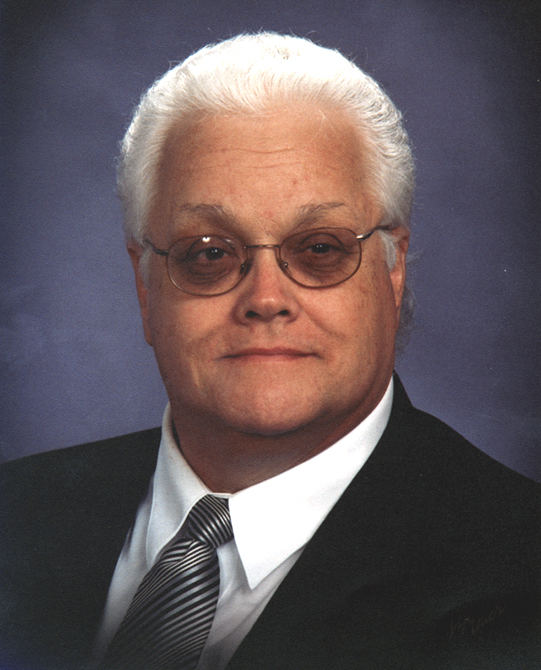By Mike Murray
Former 3-Year President of the Orlando Central Florida Chapter of Distinction
and STC Associate Fellow
Being a 30-year member of the Orlando Central Florida Chapter of STC, I have grown to love the organization and hate missing meetings. Recently, however, I missed the better part of two years while I was dealing both physically and mentally with the onset of Parkinson’s disease or PD [sic].
During my first STC chapter meeting when I finally felt well enough to rejoin life, I noticed a long-time friend and colleague looking at me. Even after my eyes met his and I mouthed “What?” he continued to look and said in a low voice, “Nothing. I’m just looking.” That long, knowing, inquisitive stare, coupled with my newly developed ESPN, was what it took for me to get the message. And what exactly is the message? Simply that people cannot possibly know what to do or say when there is an “elephant in the room.”
The Birth of an Elephant
I was first diagnosed with PD in September of 2008. PD is a progressive disorder of the nervous system that affects your movement. It develops gradually, sometimes starting with a barely noticeable tremor in just one hand. But while a tremor may be the most well-known sign of PD, the disorder also commonly causes stiffness or slowing of movement. PD affects different people “differently.” For me, it made my legs extremely weak, affected my balance, and dramatically changed my voice.
The official diagnosis was very difficult for me to handle. This certainly wasn’t what I envisioned for retirement. I was looking forward to lots of travel, fishing, and my passion—sports announcing. But as PD would have it, I had to surrender my driver’s license. As if that wasn’t enough, I lost my announcing voice. As a fiercely independent person, I became dependent and isolated. My whole world changed overnight.
Advice for Other Elephants
Once you have a name for your illness, you should seek out a professional who specializes in it. It may take a while for your doctor to determine the mix of medications that will do you the most good. At the same time, identify a therapist. It is very important for you to talk about your malady. You have to make it real before you can accept it.
- Practice Acceptance
Yes, acceptance is very important. What else can you do? Going the “Why me?” route simply delays your life adjustments. Yes, you can still lead an interesting, fulfilling life. As I said to my son Aaron, “I can’t believe this is happening to me.” His response was, “Well it is!” His message was clear. Quit wasting time, accept it, and move on. I sure did raise some smart sons.
- Practice Thankfulness
Counting your blessings with a sense of pleasure and wholeness is a way to be thankful. People with a strong sense of gratitude, love and appreciation don’t necessarily have more than others; they aren’t “luckier.” They simply recognize and see more beauty in their lives. A 2003 study suggests that people who count their blessings are generally happier and healthier than people who don’t. If you ever feel as if anything in your life isn’t “enough,” try practicing an attitude of thankfulness. You might realize how good you have it after all.
How to Deal with Elephants in the Room
Treat people with disabilities as you would anyone else:
- Welcome them if they are new in your class or workplace.
- Never stare at them or act condescending or patronizing.
- Don’t focus on the disability.
- It is important that you treat them as equals, talk to them as you would to anyone else, and act as you would normally act if a new person entered into your life.
Don’t be afraid of asking what disability people are dealing with if you feel this might help you make a situation easier for them (like asking a person with a mobility restriction if he or she would prefer to take the elevator with you instead of the stairs if you see that walking poses a challenge). Chances are, people with disabilities have been asked that question a million times, and they know how to explain their disability in a few sentences. If the disability resulted from an accident or if the information is too personal, they will most likely answer that they prefer not to discuss it.
How to Deal with This Elephant
Returning to the long-time friend and colleague who was just looking at me, rather than put him on the spot, I answered him in the form of an open letter to all my dear friends in the STC chapter. Here’s what I said:
Dear Friends:
It’s time we have a heart-to-heart talk about my Parkinson’s disease (PD). At our last chapter meeting, I realized that my failure to do this a long time ago has placed you in an awkward position: how do you deal with “the elephant in the room”?
So here it is, straight from the elephant’s mouth. :o)
It has taken me a very long time to accept Parkinson’s disease (PD), retirement, aging, leaving behind “Da Voice,” surrendering my driver’s license, etc. The way things came down on me at nearly the exact same time made things extra tough. I was unable to ease gracefully into retirement, but I am doing much better. :o) IT IS OKAY to make kind comments, ask specific questions, etc. There is no need to avoid the subject. I no longer wish to be “the elephant in the room.”
Google will tell you everything you ever thought you wanted to know about PD. For each person, the symptoms vary; for example, I do not have the tremors (thank goodness). The symptoms I do have come and go unexpectedly and vary in intensity. Here is what you can expect:
- Stiff muscles (rigidity) and aching muscles. Rigidity can also affect the muscles of my legs, face, neck, or other parts of the body and may cause muscles to feel tired and achy.
- Slow, limited movement (bradykinesia), especially when I try to move from a resting position. For instance, it may be difficult to get out of a chair.
- Weakness of face and throat muscles. Talking and swallowing may become more difficult. Speech becomes softer and monotonous. Loss of movement in the muscles in my face can cause a fixed, vacant facial expression, often called the “Parkinson’s mask.” By the way, it is perfectly okay to ask me to repeat myself.
- Difficulty with walking and balance. Sometimes, I might take small steps and shuffle with my feet close together, bend forward slightly at the waist (stooped posture), and have trouble turning around. I’m trying to remember not to walk that way.
- Cramps in the muscles and joints.
- Freezing, a sudden, brief inability to move. It most often affects walking.
- Fatigue and/or sleepiness may come on very quickly without warning.
- When anxiety is high, I’m behind on sleep, etc., I can sometimes get a little emotional. If it happens, just keep smiling and talking. I’ll snap out of it. Emotional and physical stress tends to make the symptoms more noticeable. Sleep, complete relaxation, and intentional movement or action usually reduce or stop most of the symptoms.
To summarize, I am aware that I look weird, act weird, and talk weird. It’s like living in a building and watching it fall apart around me. Well, I’m still in here! Please know that in my brain, I am still a wild and crazy guy! It’s fine to talk to me as you always have, and don’t give a second thought to anything else.
Does that help? If not ask me anything you like. I love each and every one of you.
How to Create an Elephant
Simply ignoring people with disabilities because you think they may not want to discuss it may make them feel inadequate. They may think you don’t want to deal with them as fellow human beings or that you are trying to avoid being asked for help.
It all boils down to this:
- If your disability makes you think of yourself as the elephant in the room, you will be that elephant.
- If you treat someone with a disability like the elephant in the room, he or she will become that elephant.
The simple answer is to just treat everyone as a person, disabilities or abilities aside.
There are no elephants in the room; we create them.
(Author’s Note: Special thanks to Dan Voss, one of my very best friends and the best darn editor in the entire universe!)



Mike, Thank you for sharing. I think of you often, and always with fondness. We have a cousin in Scotland who is also battling PD. I pray that you have the strength to live your best life. Love you!
This story really resonated with my. Sharyn, my wife, has Progressive Supranuclear Palsy (PSP). Originally diagnosed as Parkinson’s disease but later as PSP. She has been stared at many times. Because PD, PSP, CBD, MSA and other diseases of the brain change the muscle movements (eyes, mouth, etc.) the appearance can be misleading. Outside the individual appears “out of it” or “crazy” or “……” fill in the blank. What people don’t realize that the brain and memory are fine. Slow, very slow, but fine and in tact. Thanks for letting others know about the “elephant in the room”. Let’s hope it resonated with others.
Mike, thanks so much for sharing your experiences with Parkinson’s Disease (PD) for a global community. I did not know about your illness prior to this blog article. My life has been enriched by having known you, Dan, Orlando Chapter colleagues, and others within the Society for Technical Communication.
It breaks my heart to know that you have PD. Daily, I reach out to people and listen to their stories and help them solve problems in education, research, and healthcare-related matters. I want you to know that as a dear friend with a common alma mater, Florida Institute of Technology, I am here to help you. Currently, my educational outreach programs are geared for those who need them. I cover most all need areas with a specialization in vision, hearing, mobility restriction, and spinal cord injury. You are indeed correct; one must get rid of the “Elephant in the Room” before one can move on.
I want to share with you two Bible verses that are memorable from three outreach programs: “The Lord has blessed me because of you.” Genesis 30:27 (NIV) and this one: “I have not stopped giving thanks for you, remembering you in my prayers.” Ephesians 1:16 (NIV)
As I write this letter, I am thinking like a Lion (joined Lions International in 2013) and am reaching out to you in that service area as well. As you go down this road, we’ll be there to help. Various medications can cause vision-related issues. And, as one STC Fellow told me, “Doctors may not know everything.” If you need to wrangle special assistance in healthcare, please contact me. My primary research project and passion is Blind Ambition, which is directed by Dr. Mohammed Yeasin in the Herff College of Engineering, also at my alma mater, The University of Memphis. It is associated with the Institute for Intelligent Systems and in the Computer Vision Perception Image Analysis (CVPIA) lab. Research for Blind Ambition also includes work associated with healthcare (special topics), systems design, and blindness. You may reach Dr. Yeasin directly at myeasin@memphis.edu